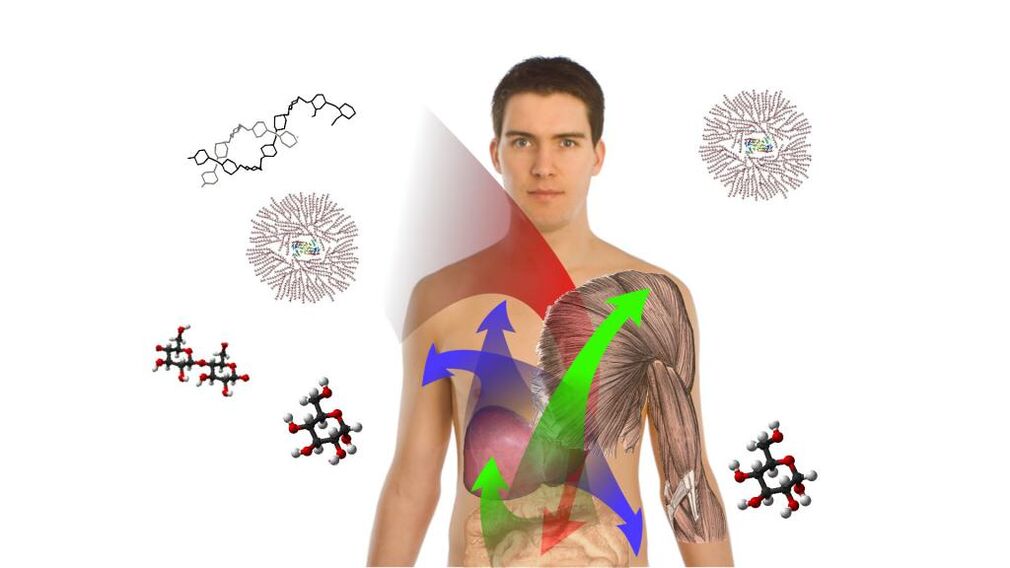
Psoriasis is a chronic dermatological disease of the skin. Psoriasis is expressed in the form of red papules (swollen spots). In recent years, the disease has become more common in people between the ages of 20 and 30. Unfortunately, modern medicine does not prevent the spread of the disease. Why does psoriasis appear, what should be the effective treatment? Let's understand in more detail.
Causes of the disease
There are various hypotheses that cause psoriasis in the world. However, this issue has not been fully studied in medicine. There are various theories, but it is still unclear where psoriasis comes from.
There are two main types of psoriasis: hereditary factor (there is a change in the immune system) and "late onset type" - after 40 years (affected areas - nails and joints).
Why does psoriasis appear?
At the level of modern medicine, psoriasis is not considered a separate disease, but a failure in an integral system of the body. In addition to typical skin rashes, patients suffer from disorders of the endocrine system, nervous and immune functions.
There is no single answer to the question of what causes psoriasis. There are several typical theories of psoriasis. Let's focus on each of them in more detail.
Theory of immunity
The theory of immunity is recognized by many doctors around the world. According to this theory, psoriasis is caused by a disorder of the body's immune system. What is psoriasis in the body? Typical papules (bright red spots) appear as a result of autoimmune aggression. The immune system perceives skin cells as foreign, so it gradually rejects them. Characteristic papules appear in their place.
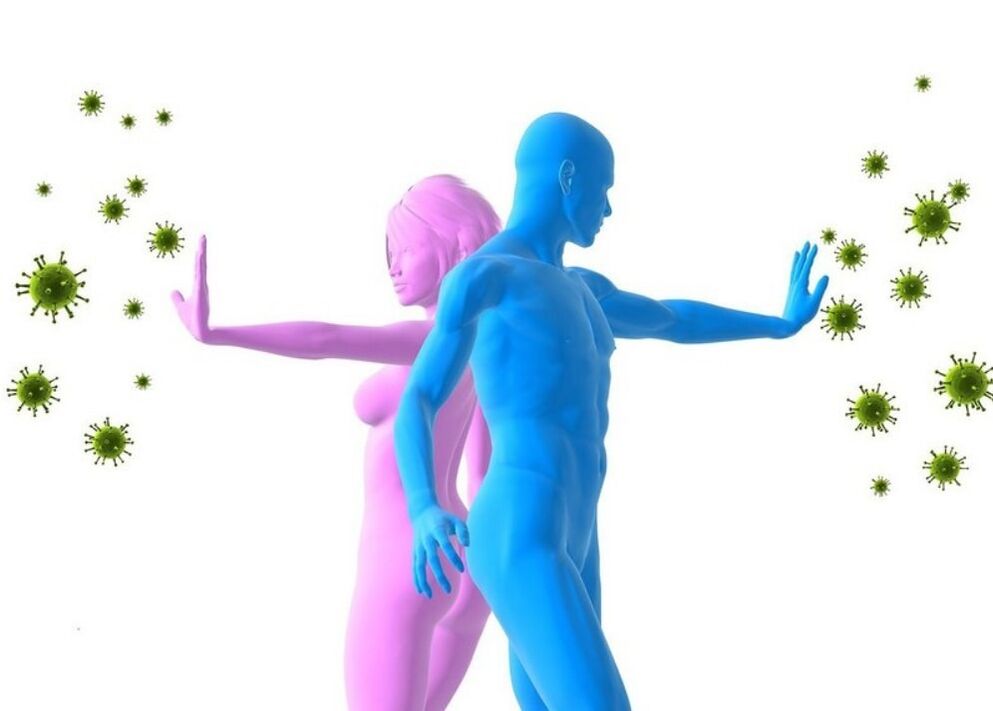
Long ago, doctors found that psoriasis can develop against the background of ongoing infectious diseases: sinusitis, tonsillitis. This theory has a right to exist, because it disrupts the immune system and provokes psoriasis. By examining papule scales, scientists have discovered the presence of antigen complexes that are not specific to healthy cells. There are antibodies against these complexes in the blood, so it is rejected - papules appear.
Low immunity is a fertile ground for the development of psoriasis.
At the genetic level
Unfortunately, psoriasis can be inherited. However, it should be borne in mind that it is not a disease transmitted at the gene level, but a predisposition to it. This fact is directly confirmed by statistics: 60% of patients with psoriasis have blood relatives with the same diagnosis.

If one of the parents suffers from this disease, the probability of psoriasis in the child is 25%. If both parents suffer from psoriasis, the risk increases to 75%.
Scientists have shown that the disease is directly related to the region of the chromosome that determines the level of inflammatory reaction in the skin. However, genetic predisposition cannot be considered the main cause of psoriasis.
Some peoples are resistant to psoriasis. Among them are Eskimos living in the Andes. These peoples have genetic characteristics, so their representatives never get psoriasis.
Endocrine theory
What is psoriasis in adults? According to endocrine theory, psoriasis can result in hormonal dysfunction. This theory was put forward by doctors after careful analysis of the course of the disease. Excessive production of skin cells is thought to be the result of a disturbance in the body's regulatory function. Therefore, due to dysfunction of the endocrine system.
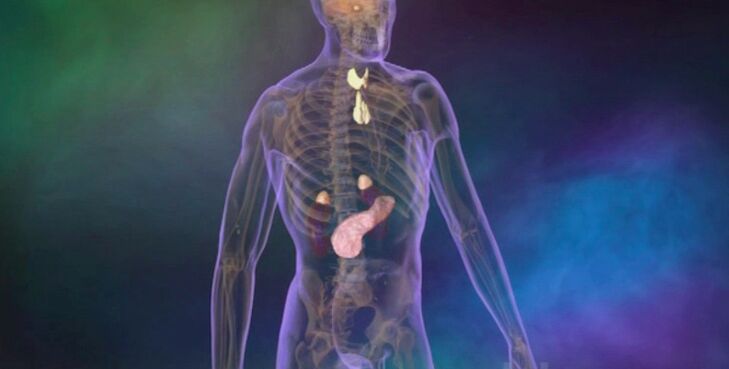
In women, psoriasis is activated during hormonal surges (ovulation and menstruation) and during pregnancy. However, to date, scientists have not identified a hormone that affects the appearance of psoriasis in this way. Therefore, it cannot be said that endocrine theory is fundamental.
Neurogenic theory
Neurogenic theory is considered one of the newest. According to him, psoriasis is caused by "nerves" and, accordingly, psychological factors are to blame. Psoriasis provokes neurosis. As a result of neurosis, blood vessels constrict, the blood supply to the skin is weakened, and therefore papules form.
Therefore, when everyone around you asks what causes psoriasis, it is not in vain that they immediately answer that it is due to nerves.
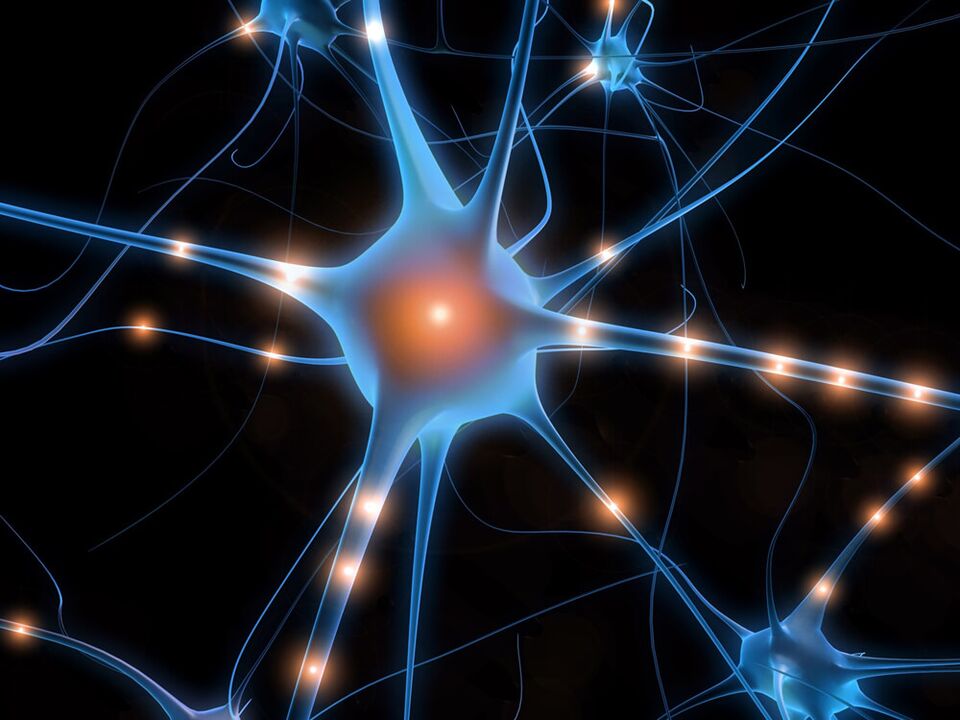
According to a number of studies, it is clear that stress, deep inner experiences, nerve shocks are a stimulus for the formation of skin rashes.
Virus theory
There is also a viral theory. In this context, doctors claim that psoriasis can occur as a result of infection. Indeed, in infectious diseases, papules appear more often and the lymph nodes grow. However, some doctors attribute such changes to a general weakening of the immune system.
Throughout the history of the disease, no specific pathogen has been identified that can trigger the appearance and development of psoriasis.
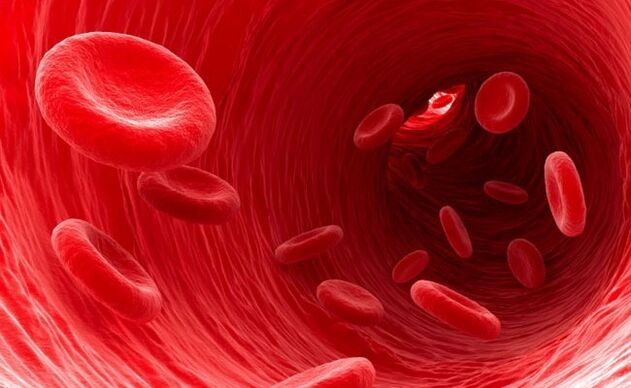
Psoriasis is a disease that does not pass through contact. No such case has been reported after a blood transfusion from an infected person to another patient.
Disorders of metabolic processes
Many patients with psoriasis have low temperatures, high cholesterol levels, and impaired metabolism of vitamins, carbohydrates, and trace elements. All this shows signs of metabolic diseases in the body.
As a result of repeated studies on patients with psoriasis, doctors have concluded that one of the causes of the disease is a violation of metabolic processes.
Factors that trigger the appearance of psoriasis
To understand exactly what causes psoriasis, it is necessary to show a series of factors that can provoke its appearance. Among the strongest factors are:
- stress, negative emotions, mental trauma, emotional and physical fatigue are fertile ground for the recurrence of psoriasis;
- infectious diseases, vaccinations;
- changes in hormonal levels in the body (during adolescence, pregnancy, lactation);
- physical injury: scratches, burns, bites, frostbite;
- taking some medications: antibiotics, vitamin complexes, immunostimulants;
- with malnutrition (excessive amounts of sweet, fatty, fried and alcohol in the diet);
- when climate changes (unfavorable conditions - humid climate, sudden temperature changes);
- in the presence of other dermatological diseases: dermatitis, fungal.
The cause of psoriasis may be hidden in one of the factors. Therefore, a patient suffering from this disease should minimize the manifestation of the above external factors that affect relapse.
The main symptoms
Pearls can manifest themselves at any age, including children. Moreover, the sooner the disease appears, the more accurately it will enter an advanced stage.
The following photos show what psoriasis looks like: a rash, cracks, papules on the surface of the skin (red spots with white scales).
The first signs of psoriasis are:
- cracks and pustular rash on the skin;
- exfoliates the nail plate;
- bubbles appear on palms and feet;
- the skin is strongly eroded;
- itching in the area of papules.
As the disease progresses, the number of papules increases to 10 cm, the skin in the affected areas is sensitive, but the hairline remains.
There are different forms of psoriasis:
- simple - spreads to the skin of the legs (on the extensor surface of the knees), papules are covered with white scales;
- seborrheic psoriasis usually occurs in people who additionally suffer from seborrheic disease; The disease is characterized by the appearance of yellow papules that stick together with sebum, do not lend themselves to the inflammatory process and are mainly localized on the scalp, behind the ears and on the face;
- arthropathic psoriasis - papules appear at the joints, feet and hands, so the disease interferes with their normal mobility;
- reverse - papules are localized in the natural folds of the body, often this form of the disease is associated with problems in the endocrine system of the body;
- tear may appear at the beginning of psoriasis, psoriasis of this form occurs - is not known in a certain way;
- psoriasis of the nails - the disease manifests itself only in the nail plates - thickens and deforms, the nails affected by the disease resemble the beak of a bird;
- erythroderma is a manifestation of psoriatic, extremely severe psoriasis characterized by a combination of plaques; If the patient's work is neglected, the plaques can cover the whole body. As accompanying manifestations: swelling, peeling, redness, severe itching and extremely bad.
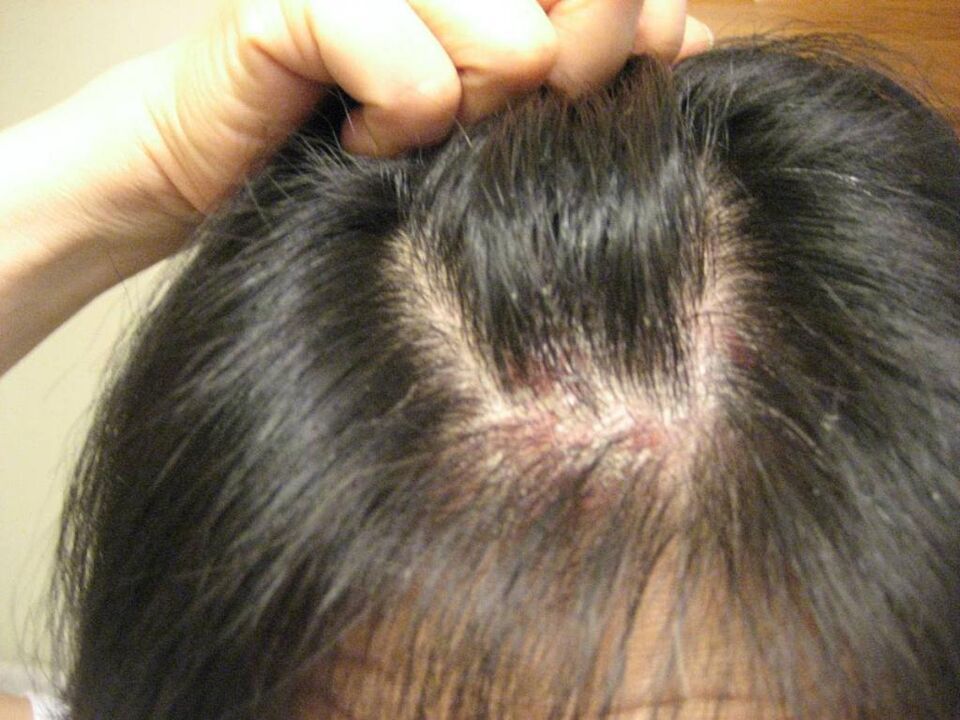
What is psoriasis on the hands? The reasons are completely individual.
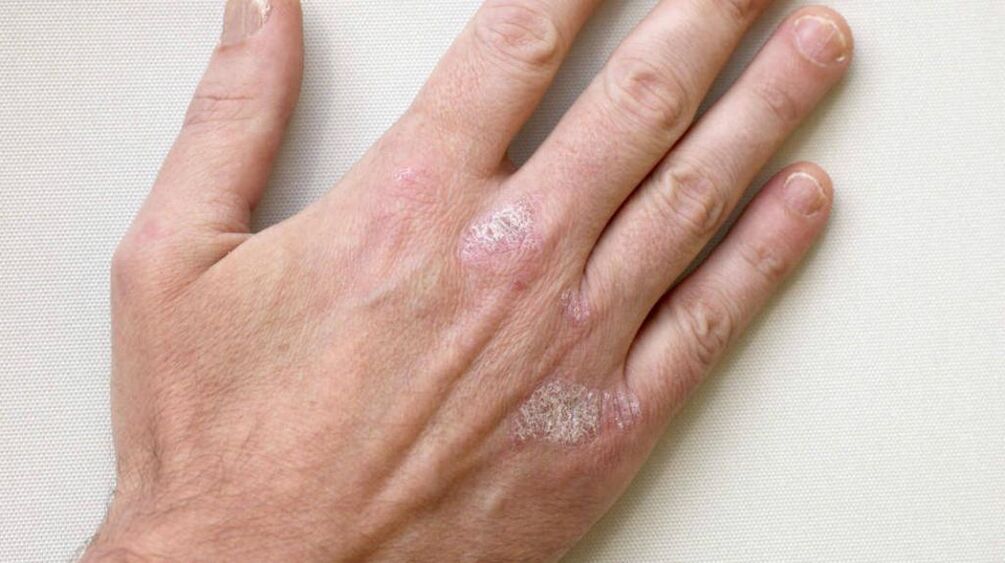
There are various factors and theories that are not completely proven. However, many doctors agree that the causes of psoriasis can be hidden in disorders of the immune, nervous and endocrine systems.
Stages of psoriasis
There are three stages of psoriasis:
- Progressive stage - characterized by bright red rashes with possible growth. If you do not take treatment on time, the disease will progress.
- Stationary stage - new papules do not appear, and those on the skin stopped growing.
- Regressive stage - papules noticeably fade, shrink in size and peeling becomes less or stops completely.
A professional consultation with a dermatologist is required to determine the correct diagnosis and stage of psoriasis. With the help of visual examination, laboratory work and microscopy, he will be able to determine the current stage by making an accurate diagnosis.
Psoriasis appeared: what to do?
Psoriasis is a complex disease that takes a long time to treat. Recurrences often appear even after prolonged remission of the disease. The main goal of treatment is to eliminate skin rashes. Therefore, it is necessary to prescribe treatment individually, accompanied by the development of the disease, symptoms and relapses.
External and internal drugs are selected among the main methods of treatment.
External treatment for psoriasis:
- ointment on solid, lanolin and oil bases;
- candle resin;
- naphthalene;
- mustard ointment;
- hormonal ointments (usually prescribed by a doctor in the progressive stage of the disease).
Internal means:
- vitamin complex;
- sedatives;
- sedative, neuroleptic;
- hypnotic;
- antidepressant;
- antibacterial and anti-inflammatory drugs;
- metabolic stimulator;
- immunopharmaceutical agent.
In addition to medication, the patient should eliminate sweet, fried, spicy, and smoked foods from the diet. Do not eat ice cream, coffee, fizzy drinks, mushrooms or sour foods.
Psoriasis is a chronic disease that cannot be transmitted through contact. The causes and factors of psoriasis are astonishing in their variety, so almost anyone can be at risk. Therefore, you need to pay attention to your health and strengthen your immune system. Avoid stressful situations and nervous tension! Think first and imagine what stress might be like for you in the future. Bless you!























